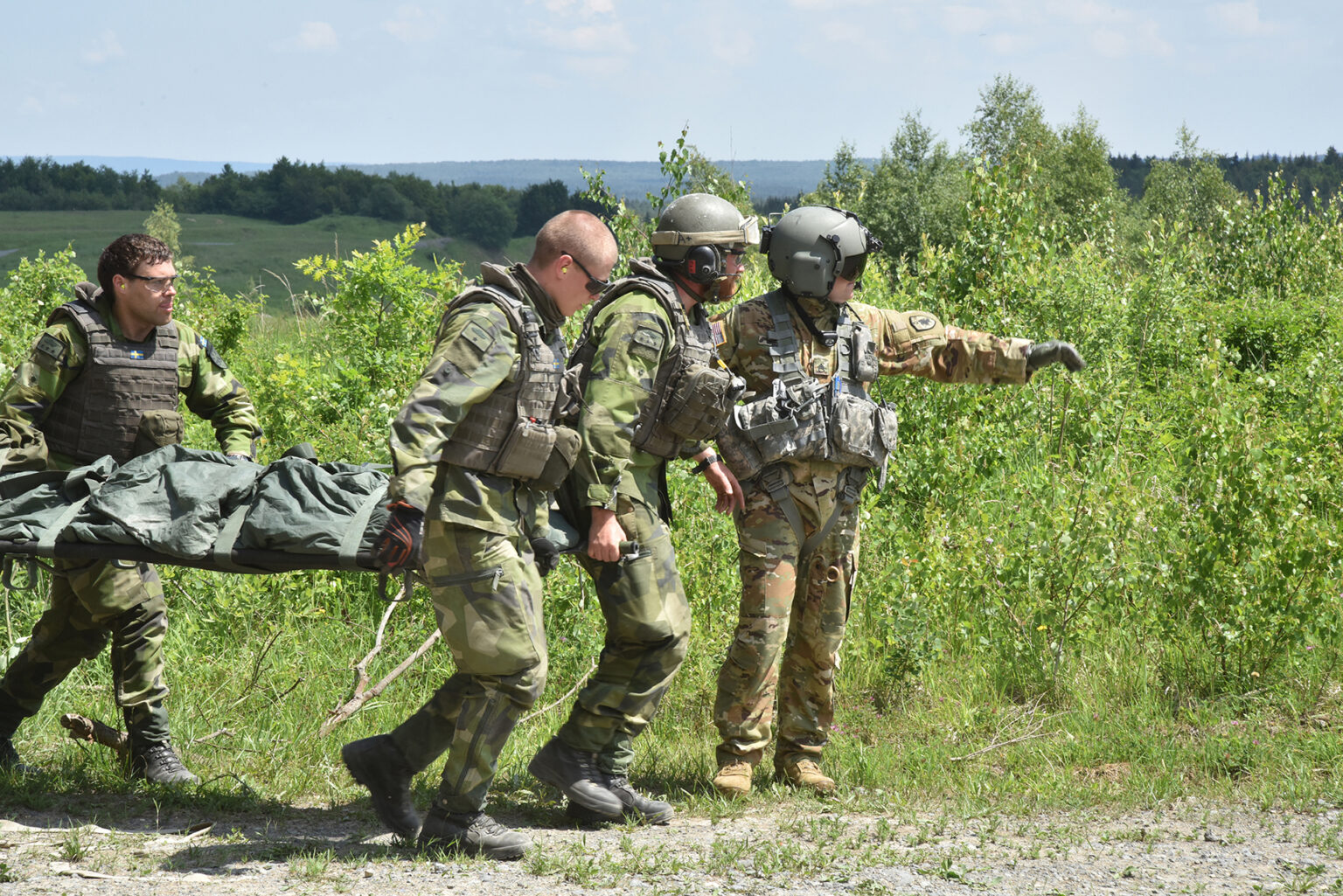Swedish troops participate in a 2018 military exercise with U.S and German allies.
THE WATCH STAFF
An aggressive Russia and a warming Arctic climate should motivate Sweden to rethink its military strategy in the region, a Swedish government researcher suggests.
Henrik Persson, a deputy analyst for the Swedish Defence Research Agency, wrote that Russia’s invasion of Ukraine should be a learning experience for Sweden about what it takes to counter aggression, according to an August 16, 2023, post on the agency’s website. The world’s reaction to Russia’s invasion – crippling sanctions, military aid for Ukraine and a strengthening NATO alliance – is a hopeful sign, the website states.
“The war in Ukraine also show(s) what can be done if there is political will, the pandemic showed not least what can be achieved if you gather strength,” Persson wrote.
Persson’s comments come as the Nordic’s largest nation prepares to join NATO after previously keeping the alliance at arm’s length since the Cold War. As it gathers military strength from the alliance to face Russian threats, Sweden also will need to adapt to defense challenges posed by a changing climate.
Melting permafrost on 60% of Russia’s land mass will cause major dislocations in that country’s infrastructure, Persson wrote, potentially destabilizing its politics. At the same time, a more navigable Arctic may also become a greater focus for Russian leaders seeking to distract from climate-related hardships in their homeland.
“The Russian leadership has highlighted the possibility of transport in an ice-free Arctic and agriculture further north in the country as good effects of climate change. But there has been less talk about negative effects,” Persson stated.
As a warming climate requires a transition away from fossil fuels, the economic trends will destabilize Russia, which has an economy based on oil and gas production. “The economy is completely dependent on the sale of fossil fuels,” Persson wrote.
Sweden’s military strategy will have to take these climate-linked factors into account, Persson stated, and its armed forces will have to adapt as temperatures rise.
“They must learn to deal with higher temperatures in facilities, vehicles and buildings. Perhaps the armed forces will have to cancel exercises in the summer when it is too hot for the soldiers and the fire risk is too great. The armed forces, not least the Home Guard, may also be used to a greater extent for disaster relief,” Persson wrote.

